Racial Equity Plan
InterAct has always striven to realize racial equity, particularly in the stories we tell. We recognize that, as a predominantly white institution, we have benefitted from a culture that centers whiteness and that our efforts toward equity in our artistic practices have not always been matched across all facets of our organization. We rededicate ourselves to creating a more equitable, diverse, inclusive and accessible theatre.
Guiding Principles
We commit to approaching all aspects of our operations with equity, diversity and inclusion at the forefront of our thinking, as we have striven to do with our artistic programming. We want to embrace policies, practices and decision-making that lead to that outcome.
We seek to cultivate an environment that is welcoming and accessible to all – administrators, artists, technicians, volunteers and audiences – and goes beyond simple availability to a genuine invitation to engage.
We believe in the power of personal connection and conversation. We encourage members of our community to talk to us, and we pledge to listen.
We seek to cultivate an environment that will allow everyone who works with us to realize their full [artistic and human] selves free of discrimination.
Knowing that dismantling systemic discrimination in society is an ongoing process, we seek to minimize the possibility for harm and redress harm as it happens. We aim to enforce transparent, equitable pathways for accountability.
What We’ve Been Doing
Producing new plays that deal with social, political and cultural issues, many that go to the heart of equity.
Increasing BIPOC representation on our stages. Of our 104 total productions:
24% have been by BIPOC playwrights —> 64% over the last three seasons
11% of our directors have been BIPOC —> 44% in the last three seasons
34% of our actors have been BIPOC —> 64% in the last three seasons
10% of our designers have been BIPOC —> 25% in the last three seasons
Engaging more BIPOC readers during season selection.
Hiring cultural consultants on productions with a singular cultural focus.
Serving as fiscal sponsor for Philadelphia Asian Performing Artists (PAPA) and providing production, management and fundraising support.
Continuing to not have any 10-out-of-12 rehearsals.
Acknowledging the Lenni Lenape as the original stewards of our land in our curtain speeches and in our lobby.
What We’ve Done Over The Past Three Years
Revamped our sexual harassment policy to include explicitly other forms of workplace harassment and devised a new reporting flowchart, to be made available to all employees, independent contractors and volunteers.
Conducted personal and group outreach to BIPOC theatre-makers to determine desires and needs.
Secured a multi-year grant to create three new plays about communities that are under-presented onstage (called The Philly Cycle).
Raised wages and fees for apprentices, artists and staff.
Secured funding to subsidize rental fees in our venue, helping smaller companies as we continue to recover from the pandemic.
Committed to new equitable hiring practices including always listing salaries, avoiding criteria traditionally used for gatekeeping, and publicizing available positions more broadly to secure a more diverse applicant pool.
Achieved 50% BIPOC representation on our staff (formerly 100% white).
Created a living list of BIPOC vendors and committed to choosing vendors from this list whenever possible.
Created a formal Nominating Committee charged with diversifying representation on our Board and with developing a more consistent onboarding process and deeper Board orientation.
Established partnership with First World Theatre Ensemble to develop a new education program.
What We’re Working On Now
Expanding research for potential plays, including more theatres and development organizations focusing on under-represented populations.
Establishing EDI training schedules for staff, Board and volunteers.
Setting up assisted listening technology in both of our theatres.
What We’re Striving For
Making free and low-cost space available to a wider pool of BIPOC and emerging artists and companies.
Making sure wages keep pace with the rising cost of living.
Focusing on making our space as accessible and welcoming as possible.
Consultation provided by Noelle Diane Johnson, Artists Heal.
UPDATED April 20, 2023

